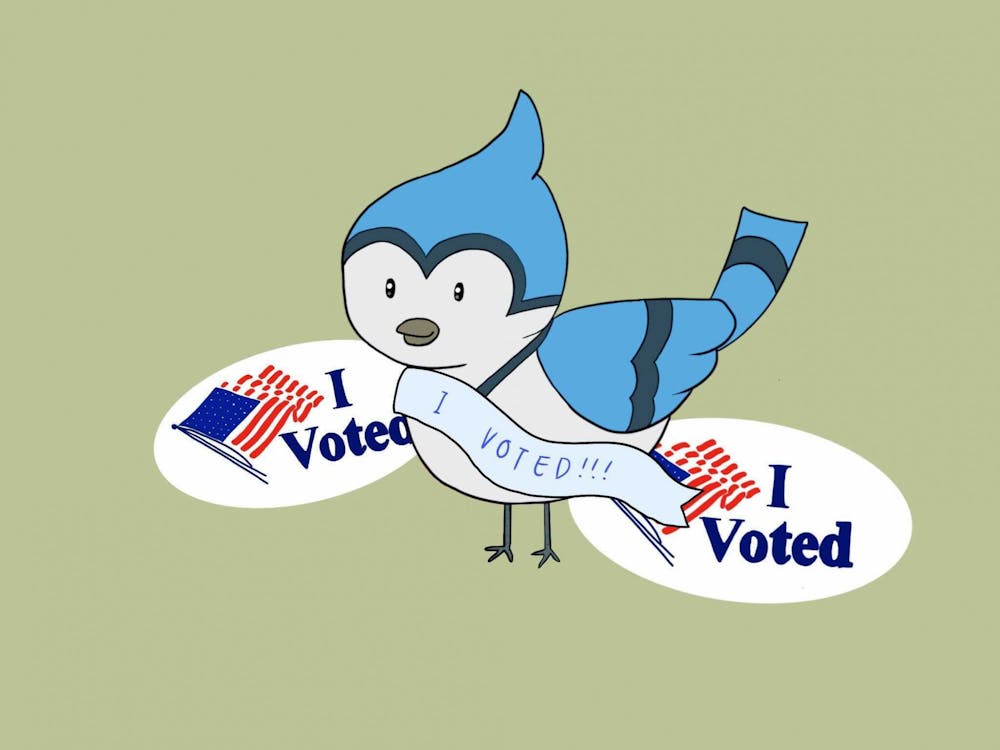There is not universal easy access to the vote. There are too many hoops and hurdles to jump through. Government websites and bureaucracy are a pain to navigate with confusing language and endless rabbit holes. Casting a ballot on Election Day is a burden, with busy schedules and long waiting times. And many elected officials are trying to make it even harder now, introducing 165 bills seeking to restrict voting rights across the country. Now add the challenge of being a new voter.
In 2020, national voter turnout under the age of 29 was between 52-55% compared to 66.7% among all eligible voters. In 2018, only 54% of Marylanders aged 18-24 were registered to vote, compared to 66% of all Marylanders over the age of 18. Although these are just the statistics regarding young people, we have a long way to go in making the vote accessible to many groups, especially the most disenfranchised.
Young people aren’t “disengaged” from civic engagement; there are just way too many barriers in the way of registering and not enough guidance. Very similar to the low statistics for voter turnout of young people are statistics concerning the military. Military participation is even lower; only 46% of military members voted in the 2016 election, the most recent national election with voting records available.
The Student and Military Voter Empowerment Act (VEA), though a small step, helps to make voting more accessible for these two groups of Marylanders and will help pave the path to increased enfranchisement efforts.
The act is not new to the Maryland legislature; it was first introduced last year but failed in the Senate. The bill has already passed in the House, and will be heard in the Senate this week. It is even more important now to place pressure on the legislature than before.
Since last year, the bill has gone through several changes. Previously, it covered only students, but now it includes military members, in addition to creating amendments to the previous legislation.
The bill would require public universities to designate a staff member to be the student voting coordinator and for them to develop a “student vote plan.” This plan would need to be created by faculty, staff and students at the university.
The bill would also require Residential Institutional Communities, including college campuses, to provide input to local Boards of Elections when polling locations are selected, as well as require universities to give students two excused hours in the day to cast their ballots. Both of these ideas help to make voting more physically accessible.
The last main point of the bill concerns service folks. It would allow for military members to use their Department of Defense-issued ID, the Common Access Card, to register to vote online.
It is unfortunate that the bill failed last year, but this is another chance for the legislature to make the right decision and pass the VEA. This bill has been supported by Maryland advocacy organizations across the state. Numerous student ambassadors at Hopkins, Salisbury University, Maryland Institute College of Art, Frostburg State University and Loyola University Maryland have spoken up and out to the legislature about the importance of this bill and the importance of making the vote accessible. Ambassadors have fostered advocacy on their campuses around this bill and the importance of voting.
Over the years, groups at our campus, like Hopkins Votes, have done incredible at getting students and faculty registered with a plan to vote. It’s time for our universities to take on more of those responsibilities. It’s time for the state to take more responsibility in making voting as accessible as possible for all people. This bill is a starting point.
There are things you can do too, reader! We need to grab the Maryland legislature’s attention. You can sign onto this letter campaign to send an email to your Maryland representatives (it takes two seconds to do). Then post it with the hashtag #MDStudentsVote to encourage your peers to take action as well!
This legislation will help pave the way for expanded voting access, and that’s something we need now more than ever.
Lubna Azmi is a sophomore from Manassas, Va. studying International Studies and Sociology. She is an intern with Maryland Public Interest Research Group.





